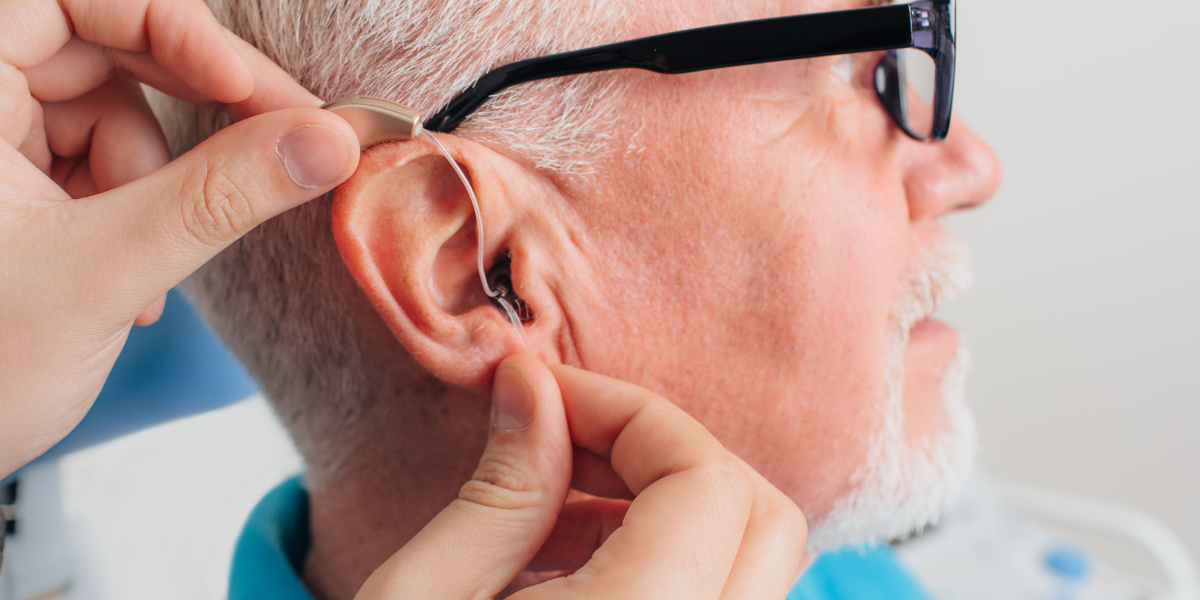The FDA approved the sale of over-the-counter hearing aids in August, and the ruling went into effect this week. Now that consumers can buy hearing aids without seeing a doctor, what should they be aware of?
Government officials like Governor Gretchen Whitmer are applauding the FDA’s decision to approve over-the-counter sales of hearing aids and emphasizing that it saves senior citizens money on health care.
Getting hearing aids from a medical professional typically involves seeing both an Ear, Nose, and Throat (ENT) specialist to rule out medical causes for hearing loss and a hearing specialist, or audiologist, to properly select, fit, and program hearing aids.
With the new FDA ruling, people can forgo the diagnosis and care of a doctor and purchase hearing aids directly from stores and pharmacies.
The Difference Between Personal Sound Amplifier Devices and Hearing Aids
For those interested in purchasing over-the-counter hearing aids, the choices may be overwhelming. Not only are there a lot of options for size, fit, and features in the hearing aid category, there are also devices which look like hearing aids but are actually personal sound amplifier products (PSAP).
PSAPs are not FDA-approved medical devices, and they are usually low quality and can even damage hearing if the volume is too loud. PSAPs are available online and range in price from less than $15 to $150 per pair, which may tempt consumers with their low price tag. Any product that specifies the word “amplifier” is a PSAP, not a hearing aid.
According to the FDA’s website, “Hearing aids are intended to make up for impaired hearing. PSAPs, in contrast, are intended for people with normal hearing to amplify sounds in certain situations, such as recreational activities like birdwatching or hunting.”
Alternatively, hearing aids are medical devices, designed to assist people with sensorineural hearing loss which is the result of aging, injury, or some diseases. Hearing aids are prescribed, programmed, and fitted by medical professionals with special training.
How To Get Hearing Aids Over-The-Counter
Now that hearing aids are available over-the-counter, individuals interested in purchasing them without the help of a medical professional will have to choose from a myriad of options.
Devices range wildly in price, and it can be hard to tell the difference between true hearing aids and PSAPs.
Retail stores like Walmart carry both PSAPs and digital hearing aids with price tags starting at $11.99 and going up to $435.99. Walgreens is selling a lexie brand digital hearing aid for $799.00.
Michigan Attorney General Dana Nessel advises consumers to beware of scams where companies are selling cheap or phony hearing devices that are supposedly “FDA registered”. The FDA does not approve any over-the-counter hearing aids. Nessel issued a consumer alert saying, “if the deal seems too good to be true, it probably is.”
For those who want to purchase over-the-counter hearing aids, they should thoroughly research brands and check the Better Business Bureau for complaints. Although the price tag on over-the-counter hearing aids may enable people to improve their hearing without spending thousands of dollars, the best way to get comprehensive care for hearing loss is to see a qualified medical professional.
Reporting for WGRT – Jessie Wiegand


